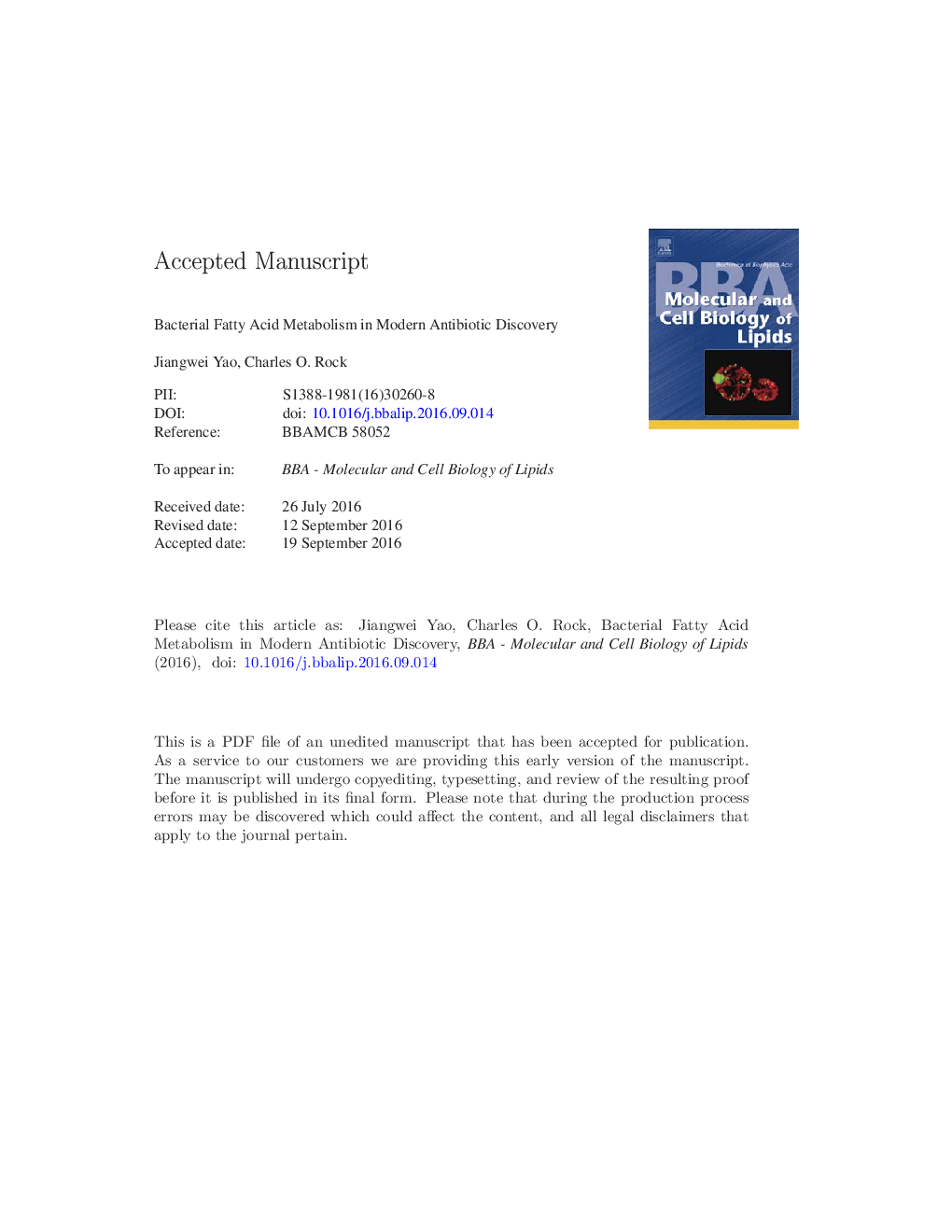| Article ID | Journal | Published Year | Pages | File Type |
|---|---|---|---|---|
| 5508298 | Biochimica et Biophysica Acta (BBA) - Molecular and Cell Biology of Lipids | 2017 | 30 Pages |
Abstract
Bacterial fatty acid synthesis is essential for many pathogens and different from the mammalian counterpart. These features make bacterial fatty acid synthesis a desirable target for antibiotic discovery. The structural divergence of the conserved enzymes and the presence of different isozymes catalyzing the same reactions in the pathway make bacterial fatty acid synthesis a narrow spectrum target rather than the traditional broad spectrum target. Furthermore, bacterial fatty acid synthesis inhibitors are single-targeting, rather than multi-targeting like traditional monotherapeutic, broad-spectrum antibiotics. The single-targeting nature of bacterial fatty acid synthesis inhibitors makes overcoming fast-developing, target-based resistance a necessary consideration for antibiotic development. Target-based resistance can be overcome through multi-targeting inhibitors, a cocktail of single-targeting inhibitors, or by making the single targeting inhibitor sufficiently high affinity through a pathogen selective approach such that target-based mutants are still susceptible to therapeutic concentrations of drug. Many of the pathogens requiring new antibiotic treatment options encode for essential bacterial fatty acid synthesis enzymes. This review will evaluate the most promising targets in bacterial fatty acid metabolism for antibiotic therapeutics development and review the potential and challenges in advancing each of these targets to the clinic and circumventing target-based resistance. This article is part of a Special Issue entitled: Bacterial Lipids edited by Russell E. Bishop.
Keywords
Related Topics
Life Sciences
Biochemistry, Genetics and Molecular Biology
Biochemistry
Authors
Jiangwei Yao, Charles O. Rock,
